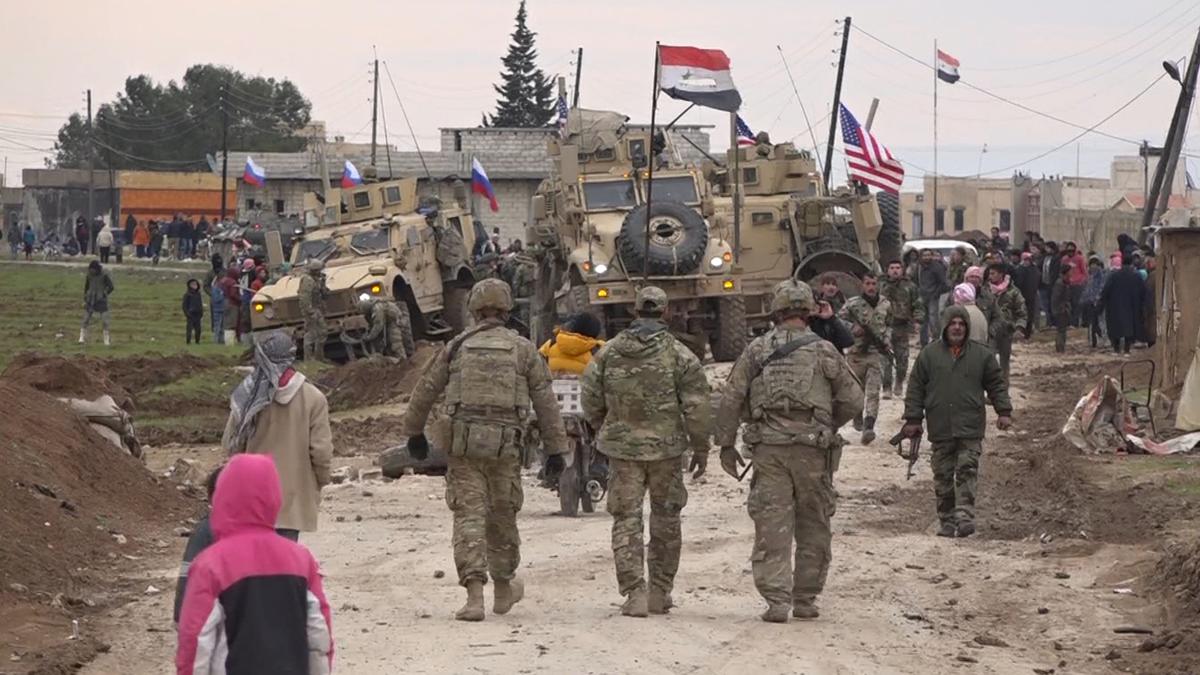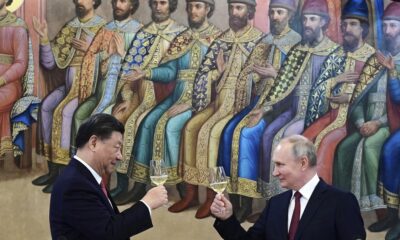Syria’s long civil war has regained global attention following the seizure of most of its largest city and numerous nearby towns and villages by insurgents.
The remarkable advance on Aleppo by rebel forces occurred as several significant players in the conflict have been preoccupied or weakened, leading to the most intense clashes since a ceasefire in 2020 brought a period of relative calm to the northern region of the country.
Russian and Syrian forces have conducted numerous airstrikes in an attempt to halt the insurgents’ progress, resulting in substantial casualties.
The civil war in Syria began in 2011 after an uprising against President Bashar Assad’s regime. Five foreign powers, including the U.S., Russia, and Iran, have a military presence in the country. Opposition forces to Assad, along with U.S.-backed fighters, control over a third of the nation. Israel currently holds the Golan Heights, which it acquired during the 1967 war with its Arab neighbors.
A Look at the Key Players:
Syrian government troops have maintained control over a large portion of the country, with support from allied forces sent by Russia and Iran.
Assad’s forces dominate most major population centers, including the capital Damascus and cities in central, southern, and eastern Syria.
The Syrian government’s recapture of Aleppo in late 2016 marked a turning point in the conflict, and the recent loss of the city represents a significant setback.
Iran’s military advisers and proxy fighters have played a crucial role in bolstering Assad’s forces throughout the war. However, Lebanon’s Hezbollah militant group, supported by Iran, has been weakened in recent conflicts with Israel, while Iran has been distracted by ongoing conflicts. Iraqi militias backed by Iran deployed to Syria on Monday to support the government’s counteroffensive.
Russia’s military support for Assad extends from the Mediterranean coast, where it maintains its sole naval base outside the former Soviet Union, to the Hemeimeem air base in Latakia province, home to hundreds of Russian troops. However, much of Russia’s focus and resources have been diverted to the war in Ukraine.
Anti-government forces are led by the insurgent group Hayat Tahrir al-Sham, formerly al-Qaida’s branch in Syria and deemed a terrorist organization by the U.N. and countries like the U.S.
HTS controls a significant portion of northwest Syria and established a “salvation government” in 2017 to oversee daily affairs in the region. In recent years, its leader Abu Mohammed al-Golani has sought to rebrand the group, severing ties with al-Qaida, removing hardline officials, and pledging to embrace pluralism and religious tolerance.
Other insurgent groups include Noureddine el-Zinki, which previously had U.S. support before joining the HTS-led alliance.
A coalition of groups known as the Syrian National Army, backed by Turkey, has targeted areas such as the northern town of Tel Rifaat, controlled by the U.S.-backed and Kurdish-led Syrian Democratic Forces.
Activists have reported the involvement of Chinese fighters from the Turkistan Islamic Party and Chechen fighters from the former Soviet Union in battles in northwest Syria. Turkey, which controls parts of northern Syria, has not disclosed the number of troops present in the country.
The Kurdish-led Syrian Democratic Forces, a U.S.-backed coalition, holds significant territory in eastern Syria.
The SDF has engaged in combat against the Islamic State group, culminating in the capture of the extremists’ last stronghold in eastern Syria. Approximately 900 American troops are stationed in eastern Syria to prevent a resurgence by the extremist group.
SDF forces still retain control over several neighborhoods in Aleppo surrounded by insurgents. Reports suggest that insurgents are willing to allow these fighters to retreat to northeast Syria, though it remains uncertain if the Kurdish-led forces will facilitate this.
Turkey views the primary Kurdish faction of the SDF as affiliated with the banned Kurdistan Workers’ Party (PKK), considered a terrorist organization by Turkey and its allies.
Published – December 03, 2024 05:30 am IST








































